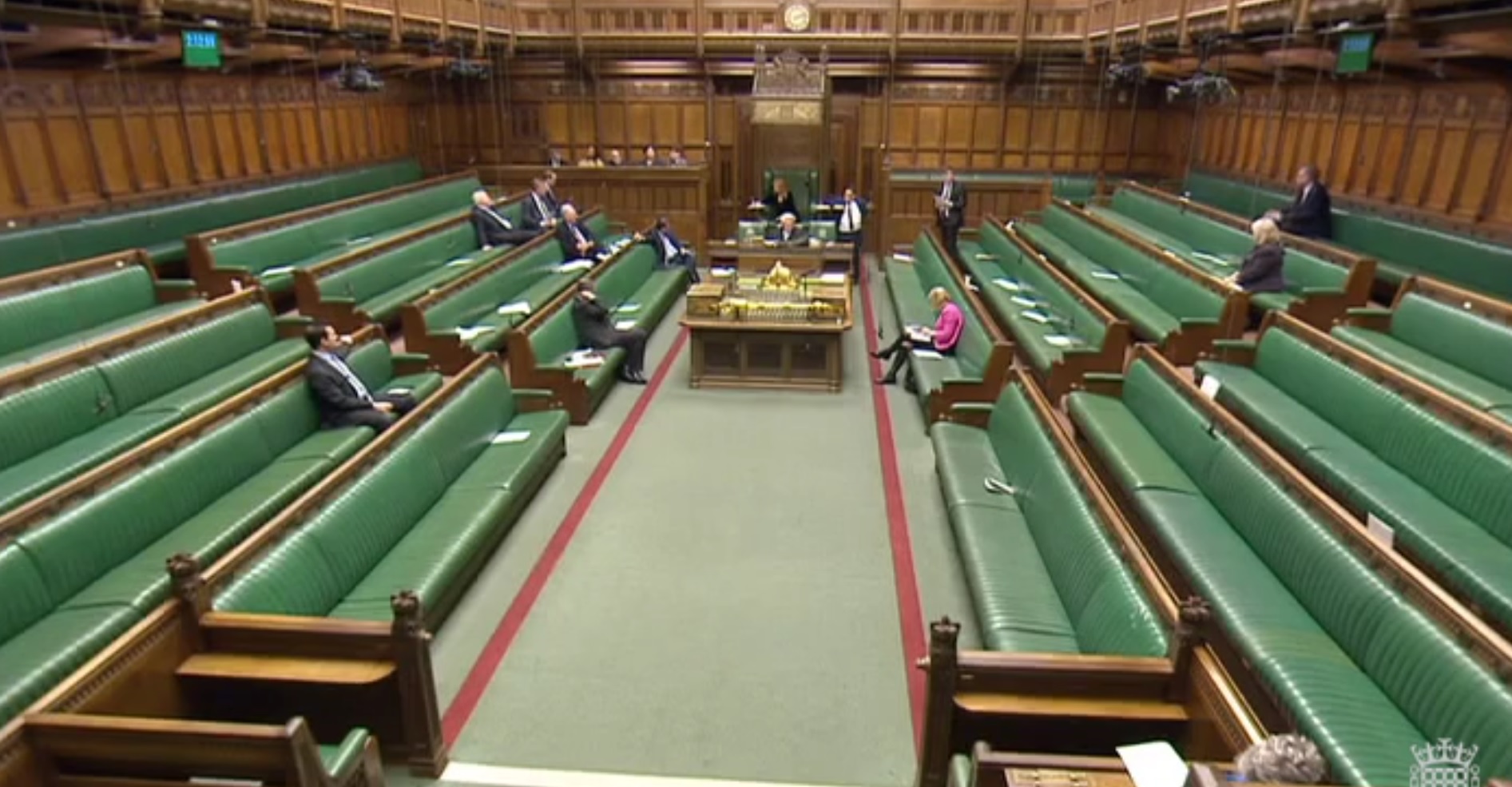“The PPI of the house building Industry”
The APPG for Leasehold and Commonhold Reform managed to secure a debate in the commons chamber on Tuesday 20th December 2016 to discuss the leasehold new houses scandal. With 53 APPG members, it was surprising that only 13 MPs and Housing Minister Gavin Barwell attended initially. I previously highlighted the scandal of leasehold new houses on 7 November 2016 entitled “The next mis-selling scandal” This phrase apparently being picked up, with the Labour MP for Ellesmere Port and Neston, Justin Madders calling the practice during the debate as “the PPI of the house building Industry”. See also Never buy a leasehold new house 28 October 2016
Leasehold new houses scandal
 An analysis by the excellent campaign group Leasehold Knowledge Partnership (LKP) in November 2016, revealed that 8,775 new-build leasehold houses totalling nearly £2billion were sold in England and Wales last year. In all around 45,000 new houses have been registered as leasehold. Many of these bought with help from taxpayers’ through the Help to Buy scheme. In most cases, the housebuilder sells the freehold after a couple of years to a private company, which can then demand extortionate fees from homebuyers.
An analysis by the excellent campaign group Leasehold Knowledge Partnership (LKP) in November 2016, revealed that 8,775 new-build leasehold houses totalling nearly £2billion were sold in England and Wales last year. In all around 45,000 new houses have been registered as leasehold. Many of these bought with help from taxpayers’ through the Help to Buy scheme. In most cases, the housebuilder sells the freehold after a couple of years to a private company, which can then demand extortionate fees from homebuyers.
The LKP say that housebuilders are collectively making an extra £300-£500 million a year from selling new homes as leasehold and then selling freeholds to third parties. The only conceivable reason is to produce an income stream, whilst not illegal, it’s not morally right. The Sunday Times recently reported that over the last two years, Berkeley Group has made a £136million profit selling ground rents that generate £153million a year. In their 2015 annual report Berkeley stated “During the year, the Group sold a portfolio of ground rent assets at a gross profit of £85.1 million.” In their 2016 annual accounts, Barratt Developments declared an income of £51.6 million (£34.7 million in 2015) under “other income … which principally comprises the sale of freehold reversions, ground rents, property management income and management fees receivable from joint ventures”.
On 13 September 2015 the LKP said:
“politicians supposedly concerned with issues of leasehold should be questioning this matter. Indeed Persimmon should be under further scrutiny for holding its freeholds in offshore companies – the easier to flog off to anonymous entities and avoid the leaseholders’ right of first refusal. Jeffrey Fairburn, CEO of Persimmon, says he wants to engage with ‘stakeholders’, but is less enthusiastic to explain why he is building leasehold houses around the country”
Following pressure from MPs and the LKP Taylor Wimpey has undertaken to cease building and selling leasehold new houses from 1 January 2017. The government said it will scrutinise the enthusiastic monetisation of leasehold by other housebuilders in the New Year, including Bellway, Redrow and Persimmon, whose leasehold houses are built and offered for sale nationally.
Some housebuilders have been selling leasehold houses since 2007. Housing minister Gavin Barwell confirmed that “43% of all new build registrations in England and Wales in 2016 were leasehold.”
According to a survey by LKP of 105 leaseholders with onerous ground rents: “58% bought their properties using the solicitors recommended by the housebuilder. When asked whether the solicitors highlighted or indicated the ground rent terms, most replied “no”. All respondents claim solicitors did not inform them that the ground rent terms could affect resale values, as legal practitioners are obliged to do. 25% bought through the taxpayer-backed Help to Buy scheme.”
MP’s debate the leasehold new houses scandal
For the full Hansard transcript of the debate click
Sir Peter Bottomley comprehensively exposed the abuses and he named names. He said this “goes beyond sleaze”. A CBRE report stated that some people who are developing property with leaseholds are now selling the freehold in advance so that they escape the responsibility of offering it to the leaseholders after two years. He said: “I own some shares in Persimmon and some in Taylor Wimpey, and I might buy some shares in other builders. If necessary, I shall go to their AGMs, giving notice in advance, to ask what they will do to unwind the problems that they created in the past.”
The leasehold new houses scandal
Justin Madders Labour MP for Ellesmere Port and Neston
“This is nothing short of a national scandal. It is the PPI of the house building industry.
Thousands of people around the country who bought new homes in good faith are the victims of what can only be described as a racket by some of the country’s best-known developers, who between them have received millions of pounds from taxpayers to provide affordable homes and have also been the recipients of generous subsidies as a result of policies such as the Help to Buy scheme.
When people buy their home, they like to know who they are buying it from, but leaseholds are often sold on to third parties who can then vary the agreed terms of the leasehold, at which point—this is a scandal—developers claim that it is no longer anything to do with them
The prices quoted [for buying the freehold] can vary significantly for almost identical properties, suggests that the buy-out costs are calculated on nothing more than what the investors think they can get away with.
One constituent received advice from solicitors who were recommended to her by Taylor Wimpey, and she felt under some pressure to appoint them. She was advised that the lease did not impose an unduly onerous or prejudicial burden. This was for a leasehold Taylor Wimpey house with a ground rent that doubled every ten years.
It is a cynical business decision, which will in the long run damage the reputation of those involved.
It is also disappointing that the newest development in my constituency, currently being constructed by Redrow Homes, is also being sold on a leasehold basis. Redrow tells me that this fact is made known to purchasers before they reserve their property, although I note that on its website the promotion of that particular development makes no mention of that. What is particularly disappointing is that Redrow, despite my asking twice why it feels the need to sell large detached family homes on a leasehold basis, offers no justification whatsoever.”
“Does he [Housing Minister Gavin Barwell] agree that developers should be prohibited from recommending a particular solicitor to purchasers because of the clear potential for a conflict of interest and the clear failure, as we have seen here, to provide the best advice?”
“Will the Minister consider withdrawing and recouping taxpayer subsidies to any development found to be ripping off householders in this way?”
I am sure Oliver Colville will recall my presentation to the APPG Inquiry Into the Quality of New Homes, when I called for an “end state funding and government help for failing and indifferent housebuilders.” I am not sure how this funding can be retrospectively “recouped” from particular housebuilders, but Help to Buy and other schemes are no longer necessary as low-rate mortgages are now freely available. I also suggested that “No housebuilder should be allowed to encourage their buyer to use any particular firm of solicitors or mortgage broker.” Now MPs can see the damage that housebuilder suggested/recommended solicitors does and how this clear conflict of interest adversely affects and disadvantages new homebuyers.
Oliver Colville said that housebuilders are selling the freeholds in advance so they do not have to be offered to new home leaseholders.
Housing Minister Gavin Barwell said that he acknowledges that many of the examples raised by MPs in the debate are not exceptions and that there are widespread problems that need addressing. He said:
“Analysis by LKP suggests that nearly 9,000 houses were built and sold last year as leasehold. Some have no shared services or estate management functions. In fact, they seem to exist only to create a reliable income stream from the ground rent, permissions to alter the property, and selling on the freehold at some point in the future. Developers can maximise their return by selling the freehold interest to the leaseholder at a higher value after they have moved in, or by selling it to a third party without informing the leaseholder. That is a critical point: if a freeholder wishes to sell a leasehold flat, the leaseholder has the right of first refusal, but that right does not extend to those in leasehold houses. The Secretary of State [Sajid Javid] and I have been looking closely at the issues raised in recent weeks and we are both absolutely determined to stamp out unfair, unjust and unacceptable abuse of the leasehold system.
We should not be under any illusions. The problem does not just concern one company; a number of our larger developers are involved in it. They would do well to remember that they are building homes for people to live in, not investment vehicles for financial institutions. Except in a very few exceptional circumstances, I cannot think of any good reason for houses to be built on a leasehold basis. If the industry does not put a stop to the practice and help existing homeowners, we will look to see what Government can do.
Both this House and the Government want to hear more from the developers about what they are going to do to put the situation right.
The motion states that the House “has considered” this issue, and I want to reassure my honourable Friend that it will be considered by the Government and that we will come back in the New Year with proposals about how to tackle it.”
Quite frankly, the housing minister should be telling the housebuilders what they must do, not asking them for their proposals to end this leasehold new houses scandal. After all, it is the lack of any law prohibiting this that has enabled the housebuilders to get away with this practice for nearly ten years, yet only now is government recognising the problem.
On 5th October 2016 Prime Minister Theresa May told the Conservative Party Conference that she was about:
“Righting Wrongs : Challenging vested interests : Taking big decisions : Doing what we believe to be right : Getting the job done : That’s the good that Government can do and that’s what I’m in this for : Standing up for the weak, standing up to the strong.”
“Standing up” to housebuilders and “righting wrongs”. Banning the sale of leasehold new houses and ending Help to Buy on 1st January 2017, making it illegal for housebuilders to nominate, suggest, recommend or offer homebuyers cash inducements to use a preferred firm of solicitors and setting up a New Homes Ombudsman would be a good place to start Mrs May!







One Response to Commons Debate Leasehold New Houses Scandal